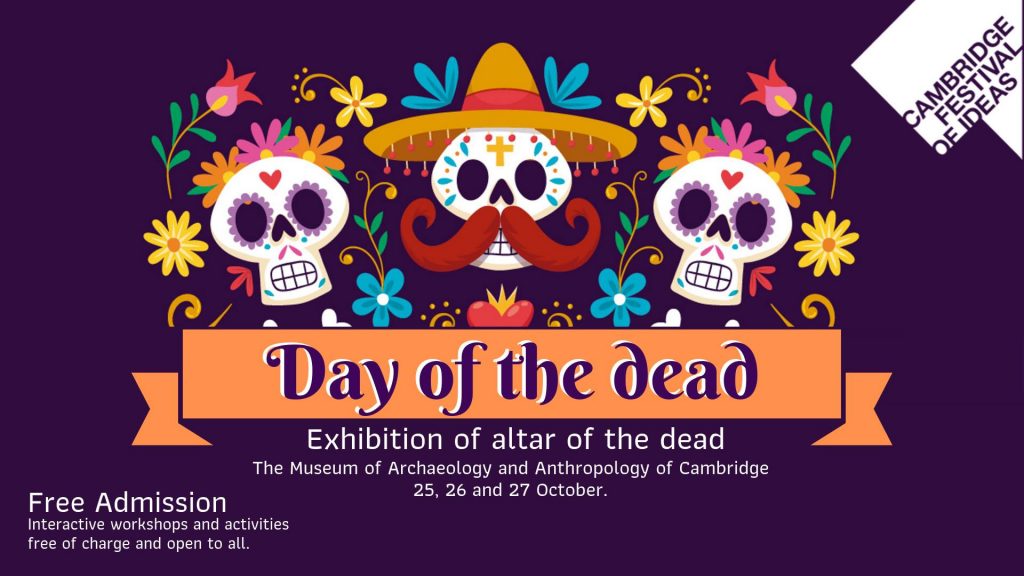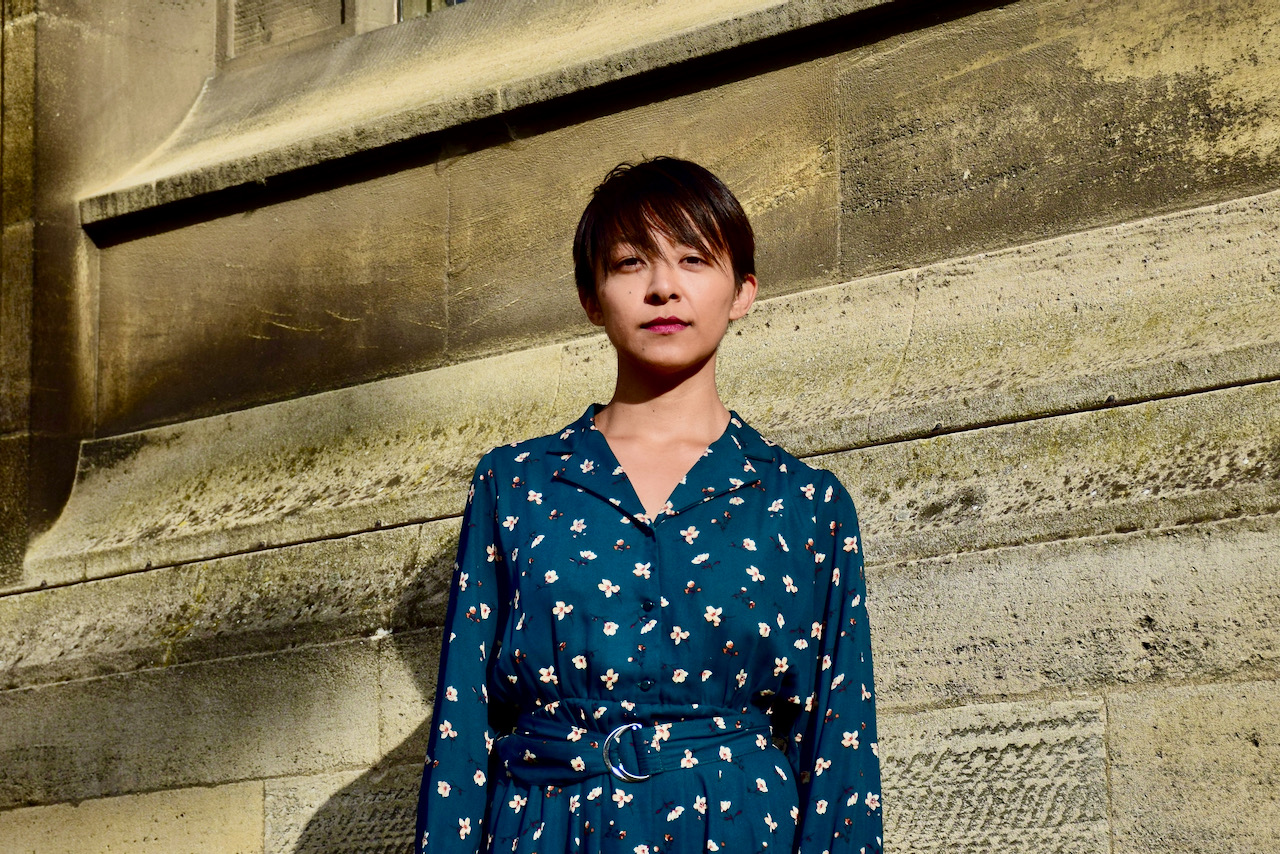
Jessica Fernández de Lara Harada is co-curating a Day of the Dead event at the Cambridge Festival of Ideas which celebrates Mexico's migrants and minorities.
The Altar seeks to evoke...loss and absence as journeys, transitions and transformations between those who part to another plane, and those who remain.
Jessica Fernández de Lara Harada
A Gates Cambridge Scholar is co-curating an Altar of the Dead exhibition at this year's Cambridge Festival of Ideas to rise awareness about past and present migrants and minorities in Mexico.
Jessica Fernández de Lara Harada [2016], who is doing a PhD in Latin American Studies, is curating the event at the University of Cambridge’s Museum of Archaeology and Anthropology with fellow PhD students Erika Teichert and Diego Azurdia.
The Build a Day of the Dead Altar exhibition is open from Friday until Sunday and is a collaboration between the Museum of Archaeology and Anthropology, the University of Cambridge Mexican Society and the Cambridge Migration Society.
The Day of the Dead event takes place every year at the Festival, but this year's Altar of the Dead is the Camino a Mictlān. It draws inspiration from last year's celebrations in Mexico City and is dedicated to past and present overlooked migrants and minorities: These include Chinese, Korean, Japanese, Jewish, Afrodescendants, Indigenous, political exiles and Central Americans who have lost their lives in Mexico and in their transit to other countries.
Camino a Mictlān aims to evoke the agony that displaced populations must live through on their way to their final destination. Similarly, in accordance with the traditional Mexican altar, the souls of the dead confront trying challenges before they can reach the underworld, in which, only after they have overcome an unsettling state of transition and have waited a prudent time, they are able to live again.
Jessica says: "The Altar wants to evoke past and present migrations in order to denote the long and on-going process of the materialisation of movement, which happens through physical and discursive forms of containment, as well as through the body. In this sense, the Altar is also an intervened one, in that it seeks to represent death not just as the loss of life, but also as shifts in identity, experiences and meaningful materialities that often fall off the grid of representation. Loss and absence as journeys, transitions and transformations between those who part to another plane, and those who remain. This Altar exhibits the traces of these processes."
Through various displaced objects, Camino a Mictlān seeks to honour the lives of migrants and minorities who are underrepresented or absent from traditional discourse. Objects include empty frames, mirrors and photographs alluding to life in detention or of family members. These offer glimpses into a multiplicity of experiences and narratives.
The event is interactive and as visitors make tehir way around the Altar, they are asked to leave their own displaced offerings behind, "to reflect upon loss and to participate in the co-creation of those who are absent; of all those erasures that challenge facile representation".
The exhibition includes photographs by artist Cinthya Santos-Briones from her series Living in Sanctuary, which engages with migrants to the United States living in physical sanctuary in houses of worship while fighting deportation. The Altar also displays photographs of last year’s Day of the Dead celebrations in Mexico City by Jessica A. Fernández de Lara Harada.

Jessica Fernandez De Lara Harada
- Alumni
- Mexico
- 2016 PhD Latin American Studies
- Emmanuel College
Jessica is a qualified lawyer and human rights defender with over five years of experience in legal practice, research and advocacy work. Her doctoral research examined the overlooked historical experience of Asians in Latin America. In particular, she focused on the experiences of Mexicans of Japanese origin across five generations in relation to the 'mestizo' racial system, citizenship and state violence, as well as repertoires of resistance in Mexico. This study built upon her master’s dissertation on graphic novel representations of mestizaje, the positioning of afro-descendants, and the operation of race and racism in Mexico from a transnational lens. Her research interests include the trans-pacific history of racialised exclusion and belonging, nation-state building, and imperial and colonial formations in twentieth century Mexico. Previously, Jessica completed an MA in Latin American Studies (with Distinction) at University College London, and a BA (First Class Honours) in Law at Universidad Nacional Autónoma de México. She was a Research Fellow at the Centre for Historical Studies at El Colegio de México; co-founder of the CRASSH Graduate Research Group 'Power and Vision: The Camera as Political Technology'; and co-organiser of the conference Memories in Transit, supported by The Centre for the Study of Global Human Movement, at the University of Cambridge, and the British Academy.
Previous Education
University College London
Universidad Nacional Autonoma de Mexico












